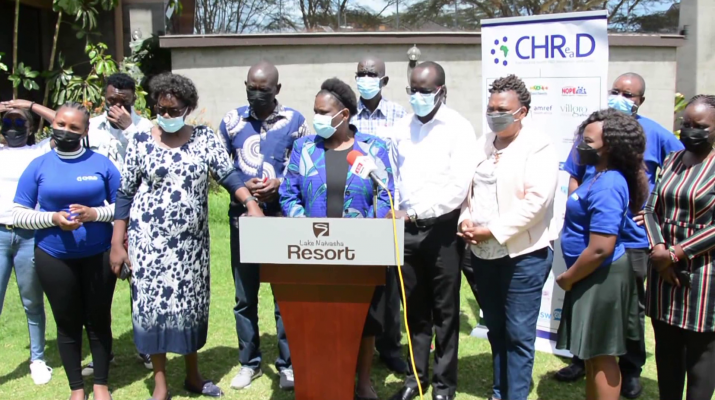Members of the Civil Society are now questioning the quality and shelve-line of some of the Covid-19 vaccine doses that have been donated to the country.
While lauding the ongoing interventions by the State, they noted that this could have adverse effects on the lives of Kenyans who were keen to be vaccinated.
This came as the group under Coalition for Health Research and Development (CHReaD) supported calls to have the country produce its own vaccines.
They noted that the pandemic had taught the country that over-reliance on donations could lead to massive loss of lives as the donor-countries had to first satisfy their needs.
According to Mary Ng’ethe, a member of the coalition, there were fears that the African continent could be turned into a dumping site for vaccines that were about to expire.
“We welcome donations from international organizations but the vaccine should be subjected to tests to make sure that they are active and have a three-month shelve line,” she said.
Speaking at the end of the coalition workshop in Lake Naivasha Resort, she admitted that Covid-19 was there and called on Kenyans to get vaccinated and observe the laid health regulations.
“We fully support the ongoing vaccination exercise by the State and we are calling on members of the public to turn out in large numbers and get vaccinated,” she said.
In a statement read by Rahab Mwaniki, the coalition welcomed plans to set up a vaccine manufacturing plant terming it as a bold step in reducing inequitable distribution of vaccines.
“Having vaccines manufactured locally will in time reduce the cost of vaccines, encourage development of other vaccines and increase access to life-saving vaccines,” she said.
Mwaniki from the Kenya AIDs NGOs CONSORTIUM praised the move to form the Kenya Biovax Institute Board (KBIB) but was quick to note that the civil society had been left out.
“We ask for inclusion of civil society and communities in the new Kenya Biovax Institute Board through the engagement of Coalition for Health Research and Development,” she said.
On his part, John Omollo said that the country had enough capacity and expertise to produce the vaccines locally so that they could be easily distributed.
“Once we start producing our vaccines we shall move away from over-reliance on donations which at times are brought in within less than two months shelve-line,” he said.
This was echoed by Phillip Nyakwana who said that the civil-society had an uphill task in educating the masses on the need to get vaccinated.
“Currently the uptake for the vaccines is low due to lack of information and sensitization campaigns at the grassroots level,” he said.

